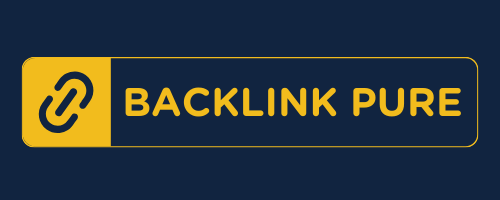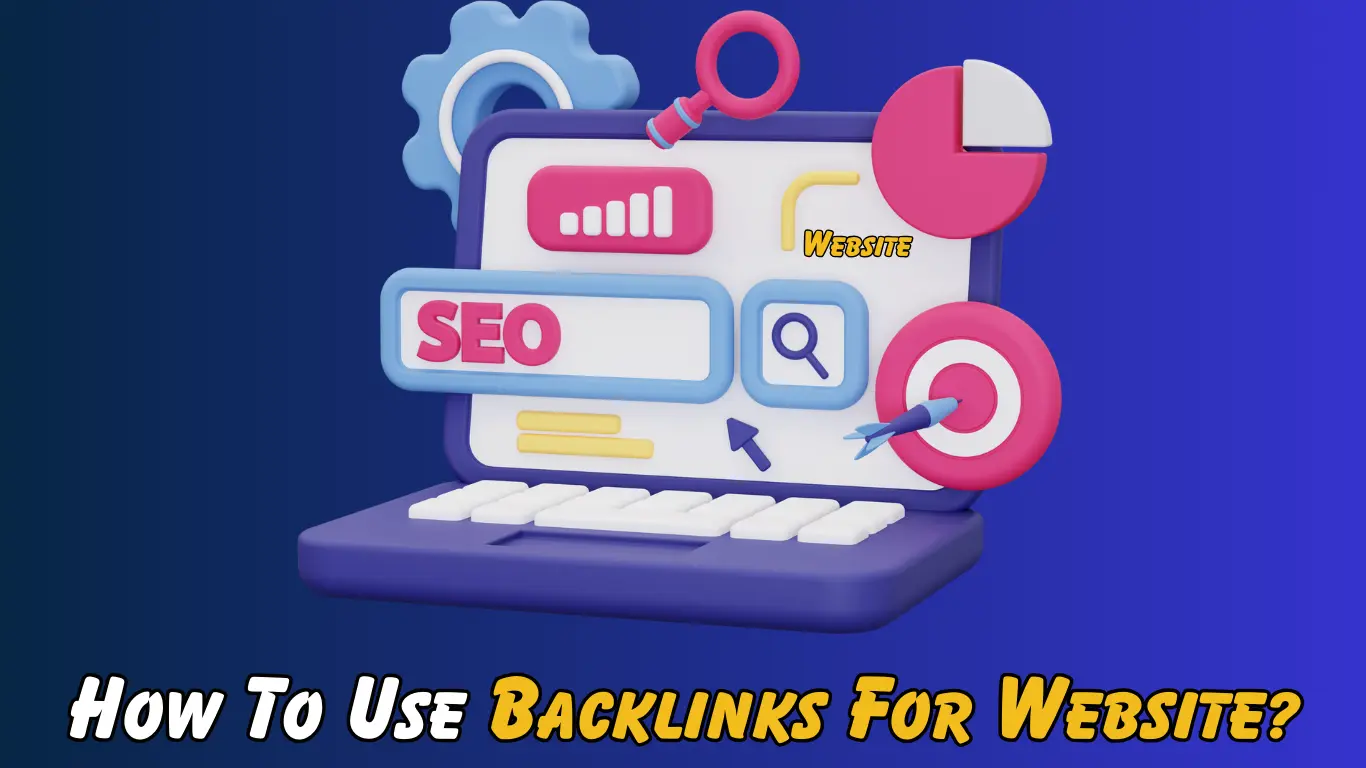How To Use Backlinks For Website? | Improve Ranking |
How To Use Backlinks For Website?
Backlinks play a major role in improving your website’s search engine exposure and credibility. They basically serve as trust and authority signals to search engines in order to show that you have valuable and relevant content. The following are a few ways of effectively using backlinks for
your website:
Find Places Where You Can Get Backlinks
Identifying reputable websites within your niche that allow for backlink placements is the first step. Look for industry directories, forums, blogs, and social media platforms where you can contribute content and include backlinks to your site.
Register or Sign Up for the Sites You Find
Once you’ve identified potential sources for backlinks, register or sign up for accounts on these platforms. Make sure to complete your profiles accurately and include relevant information about your website or business.
Sign In to the Site
After creating your accounts, sign in to the respective platforms to access the features and functionalities they offer for backlink placement.
Go to Your Profile Editing Screen
Navigate to the profile editing section of each platform where you have registered. This is where you can customize your profile and include information about your website along with backlinks.
Leave 3 Links to Your Site with Keywords
Carefully select anchor text keywords that are relevant to your content and incorporate them into the backlinks you place. To avoid coming across as spammy, try to distribute your anchor text variations naturally.
Use HTML or BBCode if Required
Some platforms may require specific markup languages such as HTML or BBCode for formatting content and inserting backlinks. Familiarize yourself with these requirements and follow the guidelines provided.
Are Using Backlinks Necessary?
In today’s competitive online landscape, utilizing backlinks is not just beneficial but often necessary for improving your website’s search engine rankings and driving organic traffic. Indicating to search engines that your information is credible and deserving of citation, backlinks function as endorsements from other websites.
The Three Pillars of SEO
Effective search engine optimization (SEO) relies on three fundamental pillars: structure, content, and authority. Your website’s exposure and relevancy in search engine results are greatly influenced by each of these pillars.
Structure
| SEO | Structure |
|---|---|
| Clear and intuitive navigation menus | Navigation menus should be easily accessible and logically organized, allowing users to find content efficiently. |
| Proper use of headings and subheadings | Headings and subheadings should be used to structure content hierarchically, improving readability and guiding users through the page. |
| Descriptive URLs | URLs should accurately reflect the content of each page, making it easier for users and search engines to understand the page’s topic. |
| Optimized internal linking | Internal links should be strategically placed to establish connections between related pages, enhancing user experience and facilitating crawling by search engine bots. |
Content
Content of the highest caliber is the foundation of every effective SEO strategy. Content encompasses not only written articles and blog posts but also images, videos, infographics, and other multimedia elements. To create compelling and SEO-friendly content, consider the following guidelines:
- To find pertinent subjects and keywords with a high search traffic, conduct keyword research.
- Make material that is unique, educational, interesting, and adds value for your readers.
- Use target keywords to enhance on-page components like headings, meta descriptions, and title tags.
- To keep your content up to date and pertinent to the interests of your audience, update and refresh it frequently.
Authority
The term “authority” describes how people and search engines alike view your website in terms of reliability and credibility. One of the main factors that determines the authority of your website is backlinks from relevant and credible websites. To build and maintain authority for your website, consider the following strategies:
- Gain reputable websites in your field to connect to you with high-quality backlinks by participating in content collaborations, guest blogging, and digital PR.
- Monitor and disavow low-quality or spammy backlinks that may harm your site’s reputation and rankings.
- Cultivate a strong social media presence and actively engage with your audience to foster brand awareness and loyalty.
- Regularly produce top-notch content that resonates with your target audience and encourages them to link to and spread the word about your website.
Which Backlinks Are Best?
Not all backlinks are created equal. The quality and relevance of backlinks significantly impact their effectiveness in boosting your website’s search engine rankings and authority. Here’s a closer look at what makes certain backlinks more valuable than others:
Relevance
Search engines give greater weight to backlinks from websites that are relevant to your industry or area. For example, if you run a fitness blog, receiving backlinks from health and wellness websites or fitness influencers is more beneficial than links from unrelated sites.
Authority
Backlinks from high-authority websites with established credibility and trustworthiness are highly prized. Strong page authority (PA) and domain authority (DA) websites transfer more link equity, which can improve the authority and ranks of your own website.
Editorial Context
Backlinks inserted into a webpage’s editorial text typically have greater authority than those positioned in footers, sidebar widgets, or other non-editorial areas. Editorial backlinks are usually obtained by merit, which shows that the linked content is important and pertinent to the audience.
Natural Link Profile
A diverse and natural link profile consisting of a variety of anchor text, link types, and referring domains appears more organic to search engines. Avoid over-optimizing anchor text or acquiring backlinks from spammy or irrelevant sources, as this can trigger penalties and harm your site’s rankings.
How to Remove Bad Backlinks
While acquiring high-quality backlinks is essential for SEO success, it’s equally important to identify and remove bad or toxic backlinks that may be harming your website’s reputation and rankings. Here’s how to handle bad backlinks effectively:
- Conduct a backlink audit using tools like Google Search Console, Ahrefs, or Moz to identify low-quality or spammy backlinks pointing to your site.
- Make removal requests from webmasters of websites that have unwanted backlinks. Please be considerate and provide precise information about the links you would like taken down.
- Disavow toxic backlinks using Google’s Disavow Tool to inform search engines that you don’t want these links to be considered when assessing your site’s authority.
- Monitor your backlink profile regularly and take proactive measures to prevent the accumulation of harmful backlinks in the future.
Are Backlinks Still Important?
Despite changes in search engine algorithms and the evolution of SEO practices, backlinks remain a fundamental aspect of a comprehensive SEO strategy. Backlinks remain a potent indicator of authority and relevancy in the eyes of search engines, even if other elements like content quality, user experience, and technological optimization also affect search rankings:
Authority and Trust
Backlinks act as endorsements from other websites, indicating that your content is valuable and trustworthy. More high-quality backlinks to a website make it appear more authoritative to search engines, which raises the possibility that the website will rank higher.
Referral Traffic
Backlinks not only contribute to your website’s SEO but also drive referral traffic directly from the linking sites. Users are sent to your content when they click on a hyperlink pointing to your website, which may raise engagement, conversion rates, and brand awareness.
Indexation and Crawling
When it comes to search engine bots indexing and scanning your website, backlinks are essential. When a search engine discovers a backlink pointing to your site from another reputable source, it crawls and indexes your content more efficiently, leading to improved visibility in search results.
Competitive Advantage
Search engine rankings can be significantly impacted by backlink quantity and quality in highly competitive industries. By actively acquiring relevant and authoritative backlinks, you can outperform competitors and establish your website as a leader in your niche.
Evolution of Backlink Strategies
While the importance of backlinks remains constant, the strategies for acquiring them have evolved over time. Today, emphasis is placed on earning natural, editorially earned backlinks through high-quality content, outreach, and relationship-building efforts.
Conclusion
In conclusion, backlinks continue to be a cornerstone of effective SEO strategies, contributing to improved rankings, visibility, and trustworthiness for your website. By focusing on acquiring high-quality, relevant backlinks from authoritative sources, you can strengthen your online presence and stay competitive in today’s digital landscape. Incorporate backlink acquisition and management into your broader SEO strategy to maximize the impact on your website’s performance and success.






